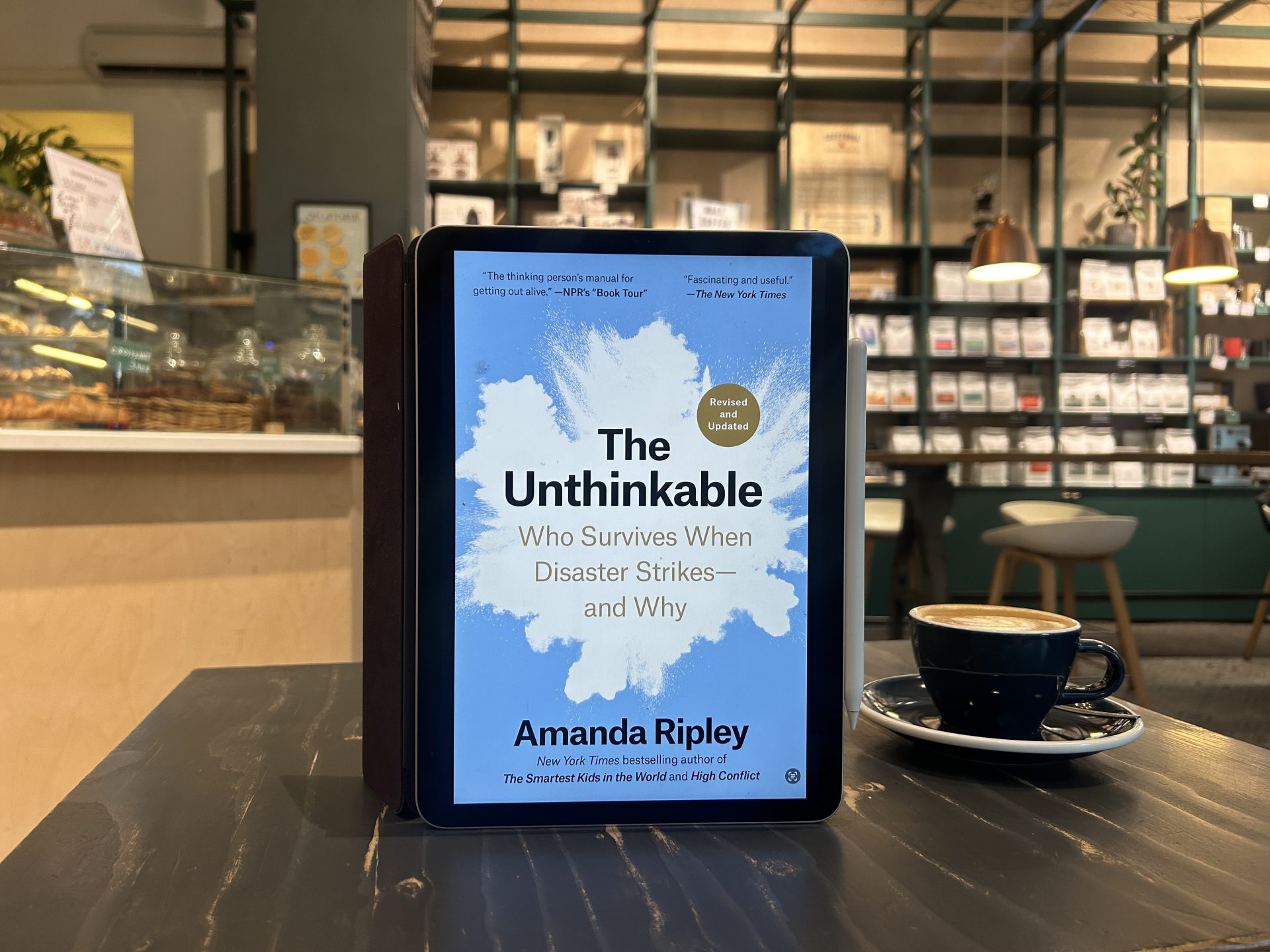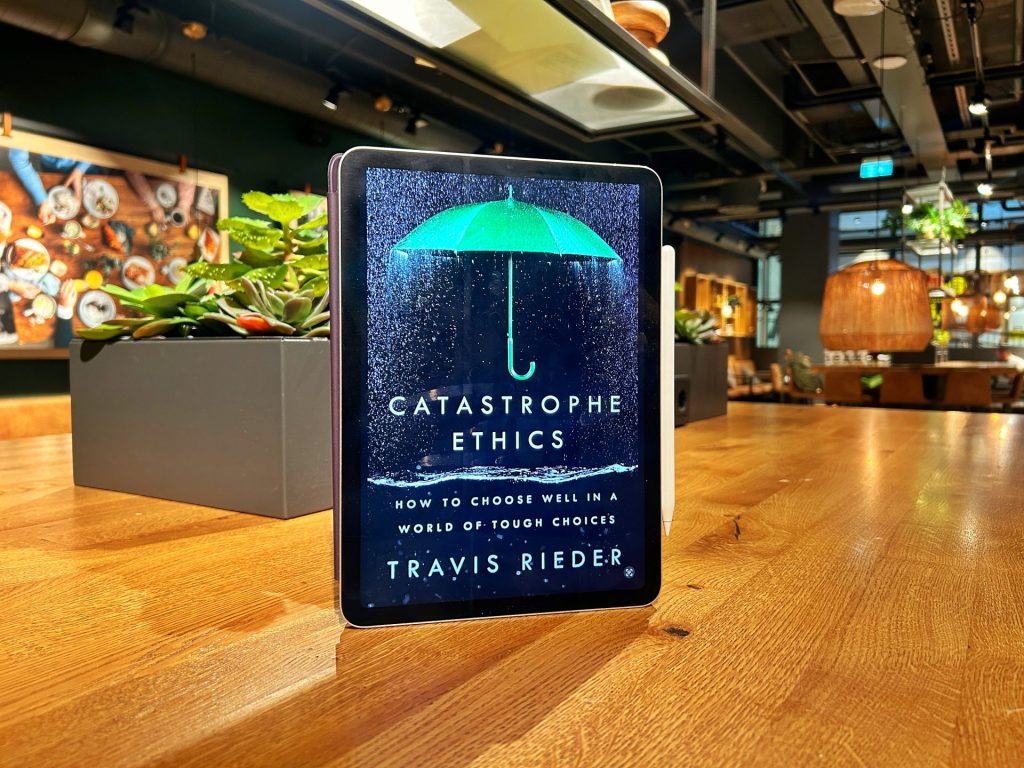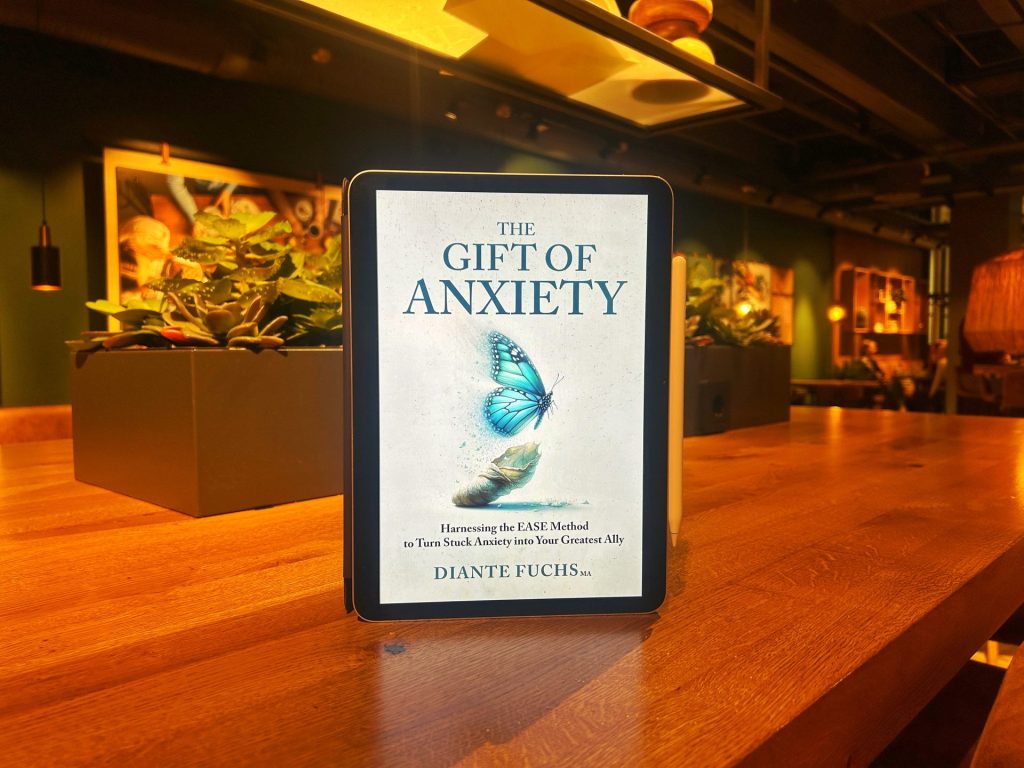We live on a planet where natural disasters can strike at any moment. Despite all our advancements in technology, the likelihood of something going terribly wrong hasn’t gone away. In fact, it might even feel more likely. That’s why understanding how we react in these situations—and what we can do to survive—is absolutely essential.
The central question of The Unthinkable is clear: Why, in a world filled with towering skyscrapers, advanced vaccines, and high-tech safety measures, are we still unprepared for disaster? We’ve gotten better at building cities and technology, yet we’ve done little to improve our own survival instincts. The truth is, we evolved to escape predators, not to flee from buildings reaching a quarter mile into the sky or to deal with modern-day catastrophes.
First published in 2008, this updated edition of The Unthinkable addresses one of the author Amanda Ripley’s biggest regrets from the original: she didn’t focus enough on trust. Trust—both in each other and in institutions—is key to surviving disasters. Without it, we’re unable to adapt to new scientific findings or shifting realities. In this updated version, Ripley dives into new research and shares more stories about how trust is built and, more importantly, how it breaks down.
Ripley interviews disaster survivors and unpacks why they made it out when others didn’t. How does the human brain react when catastrophe strikes? The Unthinkable is a gripping and easy-to-read exploration of how our minds can either help or hinder us in a crisis. It’s a must-read for anyone who wants to understand the psychology behind survival.
From the Halifax explosion in 1917 to 9/11, the 1993 World Trade Center bombing, and Hurricane Katrina, this book covers a wide range of disasters. It offers not just a history of disaster planning but also an important reality check on how we understand risk and what we can do to respond better.
One of the most fascinating takeaways from the book is that panic, contrary to popular belief, is actually quite rare during disasters. Instead, Ripley presents practical advice and mental strategies to help you prepare for the unimaginable.
But there’s a crucial point we can’t ignore: warnings are only useful if we trust them and if we trust each other enough to act on them before it’s too late. This human element, the psychology and sociology of how we behave in disasters, is the real challenge we face. And it’s the heart of Ripley’s exploration in The Unthinkable.
Summary
These days, we tend to think of disasters as either acts of God or failures of government. Regular people only seem to show up in the story as victims, but that’s a shame. Why? Because ordinary people are actually the most critical part of any disaster scene.
But why aren’t we better at teaching survival skills in our everyday culture?
The answer may lie in how we live today. “Globalization” is a term that gets thrown around a lot, often losing its meaning. Over the past 200 years, we’ve become more dependent on technology and each other, while ironically growing more disconnected from our families and communities. We’re isolated in our own codependence.
In every disaster, we experience three phases:
- Denial At first, we don’t believe something is wrong. This delay can be dangerous because how we calculate risk determines how quickly we act.
- Deliberation We realize something’s off, but we’re unsure how to respond.
- The Decisive Moment Eventually, we act. But real life doesn’t always follow this neat pattern.
The Denial Phase: Our Brains and Patterns
Our brains are pattern machines. They use past experiences to understand what’s happening now and predict what’s coming. But sometimes, we see patterns that aren’t really there. This delay in recognizing a real threat is worsened by social pressure. Nobody wants to overreact and look foolish, so we often underreact.
But even in this phase, our brains are searching for more information. We naturally “check-in” with others, a behavior known as “milling.” How you mill—and with whom—can impact your survival.
Distrust also plays a huge role in disasters. When we distrust authorities or even each other, it becomes much harder to take collective action. Unfortunately, political polarization, loneliness, inequality, and social media feed into this problem, making it even worse.
Two Kinds of Trust: Cognitive vs. Affective
- Cognitive Trust is when we trust someone based on logic and reason. Do they seem competent, kind, and reliable?
- Affective Trust is emotional. It’s the kind of trust you feel with close friends. Once someone has your affective trust, you’re more likely to forgive their mistakes.
Both types of trust are essential in crises. Without trust, even the best emergency plans fall apart.
Warning Signs and Media Influence
Good warnings are like good ads: clear, simple, frequent, and personal. But in the case of biological threats like viruses, consistent messaging is almost impossible. That’s why it’s important to rely on facts over emotion.
Interestingly, we’re less likely to be influenced by media hype when reading rather than watching TV. Words don’t carry the same emotional punch as images, so reading the news is often healthier.
How Stress Affects Our Brains
During a disaster, our brains can experience tachypsychia—a distortion of time where everything seems to slow down. But it’s not that time is actually moving slower. In fearful situations, our brains lay down richer memories, making the event feel like it lasted longer.
Repeated, realistic training is one of the best ways to prepare our brains for stress. Practices like controlled breathing can help bridge our body’s automatic fear responses and allow us to stay calm under pressure. Mindfulness, laughter, and even rhythmic breathing can physically change our brain’s structure, helping us manage fear more effectively.
Building Resilience
Resilient people share three qualities:
- They believe they can influence events.
- They find meaning in difficult times.
- They learn from both good and bad experiences.
This mindset acts like a buffer, softening the blow when disaster strikes. Interestingly, people who are overly confident—often seen as arrogant—tend to fare well in crises, simply because they trust in their ability to control the situation.
Group Behavior in Disasters
Disasters don’t just happen to individuals; they happen to groups. And in groups, we behave differently. We tend to cling to one another for support, and sometimes this groupthink can be helpful. But in certain cases, like a crowd crush, it’s dangerous. When people have less than a yard of space, they lose control of their movements, and the results can be deadly.
The Decisive Moment
Panic usually stems from a sense of being trapped, helpless, and isolated. The key to avoiding panic is providing people with space, accurate information, and a sense of control. Surprisingly, people who perform heroic acts in disasters are often the same ones who are helpful in everyday life. Their confidence and belief in their ability to shape events give them an edge when faced with extreme stress.
What Can We Do?
- Get smart about risk. Beware of warnings that lack data and focus on facts over fear.
- Strengthen social connections. Strong networks are crucial during crises, so building bonds between people should be a top priority for policymakers.
- Be critical of authority, but also recognize when it’s helpful to follow their lead. Trust is key.
In the end, how we behave matters more than policy or even technology. It’s the human factor that makes all the difference in a disaster.
My Favorite Bits
We know how to warn the public so they will listen. That’s not the problem. The problem is getting people—in particular people in power—to listen.
Amanda Ripley, The Unthinkable: Who Survives When Disaster Strikes—and Why
Author: Amanda Ripley
Publication date: 10 June 2008
Number of pages: 432 pages





Leave a Reply